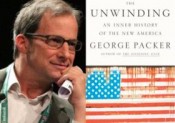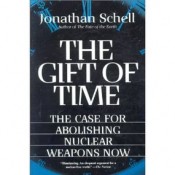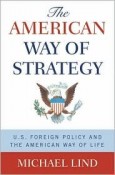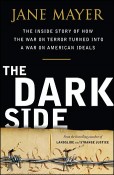Q&A w/ Author, GEORGE PACKER – THE UNWINDING: Inner History of New America
Written on February 5th, 2015Aired: 06/09/13
 |
NYTimes review: “This book hums – with sorrow, outrage and compassion.”- #8 Best-seller
Q&A: JONATHAN SCHELL, Author – The Gift of Time
Written on March 23rd, 2011 |
Aired 03/20/11
JONATHAN SCHELL was a writer and editor at the New Yorker between 1967 and 1988. A recipient of a MacArthur Foundation grant for writing on Peace and Security, Schell now teaches at Wesleyan University and the New School and is the Harold Willens Peace Fellow at The Nation Institute. He is the author of several books, including The Fate of the Earth; The Gift of TIme: The Case for Abolishing Nuclear Weapons Now; and A Hole in the World.
Q&A: MICHAEL LIND, Policy Director, New America’s Economic Growth Program; Author
Written on August 28th, 2009 |
Aired 08/25/09
Michael Lind is a Senior Research Fellow and Policy Director of New America's Economic Growth Program. Lind's first three books of political journalism and history, The Next American Nation: The New Nationalism and the Fourth American Revolution; Up From Conservatism: Why the Right Is Wrong for America; and Vietnam: The Necessary War were all selected as New York Times Notable Books. Other books include Made in Texas: George W. Bush and the Southern Takeover of American; What Lincoln Believed, and with Ted Halstead, of The Radical Center: The Future of American Politics. Lind has been an editor or staff writer for The New Yorker, Harper's Magazine, and The New Republic, and writes frequently at Salon.com.
Q&A: JANE MAYER, New Yorker Correspondent and Author
Written on July 1st, 2009 |
Aired 06/30/09
JANE MAYER, one of our nation's foremost investigative journalists will join us for at least the last half hour, maybe a bit more. Her best-selling 2008 book, THE DARK SIDE, was chosen by the New New York Times, The Economist, Salon, Slate, and Bloomberg as one of the best books of the year.
In THE DARK SIDE, MAYER reported (to quote a review by Andrew Basevich), "Since embarking upon its global war on terror, the United States has blatantly disregarded the Geneva Conventions. It has imprisoned suspects, including U.S. citizens, without charge, holding them indefinitely and denying them due process. It has created an American gulag in which thousands of detainees, including many innocent of any wrongdoing, have been subjected to ritual abuse and humiliation. It has delivered suspected terrorists into the hands of foreign torturers. Under the guise of 'enhanced interrogation techniques,' it has succeeded, in Mayer's words, in 'making torture the official law of the land in all but name.' Further, it has done all these things as a direct result of policy decisions made at the highest levels of government."
The country learned about all this and rejected Bush's Republican successor, John McCain, in favor of former constitutional law professor, Barack Obama. So has everything changed for the good?
I'd say not nearly enough.
Just in the two months since President Obama released the torture memos, a former FBI interrogator testified to the failures of the CIA's so-called enhanced interrogation techniques, a former aide to Colin Powell said the interrogations were aimed at building the case for the Iraq war, a coalition of advocacy groups has launched a campaign to disbar twelve former Bush administration attorneys.
The Obama response? While continuing to preach "move forward, don't look back" when it comes to investigating or prosecuting possible crimes committed in pursuit of the above listed policies, the Obama administration has withheld photos of detainee abuse, defended the military tribunal system, and floated plans for a system of "preventive detention" for accused Terrorists.
We will talk with JANE MAYER about the past, the present, and the future of actions and crimes committed by the US government to defend us from terror.
Q&A: GERALD CELENTE – The Trends Research Institute
Written on January 12th, 2009
Aired 01/06/09
GERALD CELENTE of The Trends Research Institute publishes TRENDS JOURNAL. A New Yorker, who calls himself a political agnostic, Celente gives everybody hell. I first booked him in January 05 and listener response has led me to make this an annual show.
CELENTE accurately forecast the Iraqi War quagmire, the last two recessions, the Dot-Com meltdown, and the 1987 world stock market crash. As far back as 1993 he predicted that a new Crusades would be raging at the dawn of the new millennium.
Excerpt from TOP TRENDS OF 2009 by Trends Research
THE YEAR THAT WAS
We described last year's "Year that Was" as ending with "an economic bang and a political thud." By contrast, 2008 goes out with a spectacular display of political fireworks and an economic implosion unlike anything experienced before.
History was made. The racial barrier came down. A man of black & white blood, modest means and scant experience was elected to rescue a great and foundering nation. A young, charismatic president was replacing a Commander in Chief who had long since worn out his welcome.
In 2000, George W. Bush assumed the presidency following an election replete with doubt and irregularities. A troubled first year abruptly gave way to a 90 percent approval rating following the trauma of 9/11. Playing his Commander in Chief trump card, he declared a War on Terror and war on Iraq.
In 2004, with the Iraq War going badly but the economy booming - especially the real estate market - he remained popular enough to squeak out a second term. In 2006, with the costs of war and casualties mounting, a Democratic Congress was voted in with a mandate to end the Iraq War. Instead they kept funding it.
By 2007, with America still bogged down in war, the real estate bubble bursting, a credit crisis erupting, and the subprime lending market collapsing, George Bush's popularity went into free fall. No longer confined to disgruntled Democrats, Bush-bashing became a bipartisan pastime.
Most will remember the economy as the 2008 Election hot button issue. In reality, it replaced the Iraq War only when the news of failing banks, bustedbrokerages, government bailouts and rescue plans preoccupied the press.
But it was candidate Barack Obama's early stand against the Iraq War - and his promise to end it - that separated him from the favorites of both parties seeking the presidency. In early 2008, none of the candidates in the run for the White House had an approval rating above 50 percent. Going into the Iowa Primary, Hillary Clinton was leading in the national polls while Obama's campaign was slowly gaining momentum. It wasn't until talk show host Oprah Winfrey jumped into the ring that it kicked into high gear.
THE PRESIDENTIAL REALITY SHOW
With the undisputed Queen of TV in his corner, the Obama campaign suddenly transformed into a flawlessly packaged Oprah production. Whether a stadium spectacle or a small town meeting, every event was staged to perfection.Was the celebrity witchcraft that endears Oprah to her millions of fans directed toward political stagecraft?
As if by magic, Obama, an adequate public speaker, became the master of the Teleprompter; so skillful - and with cameras so artfully placed - that the illusion of spontaneity was created. Pacing the stage, confident of his words, his cadenced oratory gave him a messianic quality. "Yes we can!" preached Obama. "Yes we can!" echoed his mesmerized political congregation.
As the economy worsened and the Iraq War was pushed into the background, Obama's focused message of change and his tightly-scripted performance made him a leading contender in The Presidential Reality Show.
Meanwhile, his main challenger, Hillary Clinton was repeatedly discrediting herself by playing the race card, and clumsily exaggerating her foreign policy
achievements with such claims as having dodged bullets in Bosnia and negotiating the peace in Ireland.
In opposition, the Republicans ran the uncharismatic and aging John McCain, inextricably tied to eight years of the Bush administration, an insurmountable obstacle. The President, posting near record low approval ratings, was so universally derided and despised that McCain saw Bush as an unconditional liability, banning him from the campaign trail.
The combination of an economic meltdown, Mc- Cain's acknowledged lack of economic awareness ... and puzzling choice of running mate made possible the impossible: a black, practically unknown challenger swept into power.
